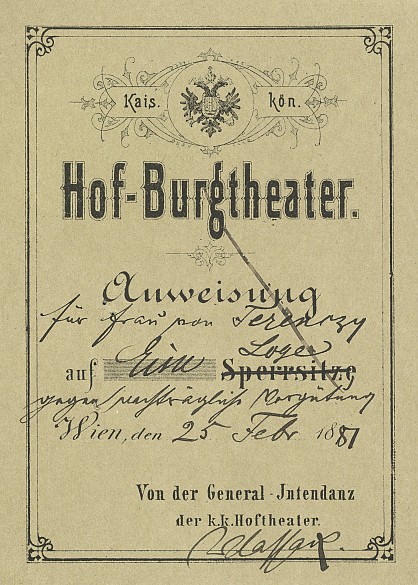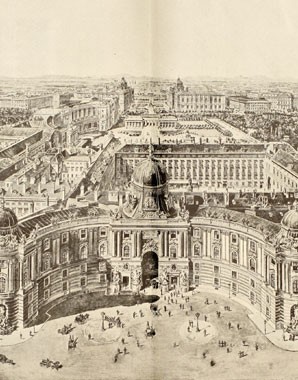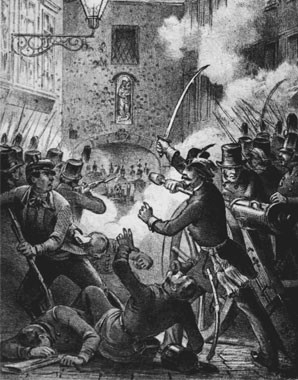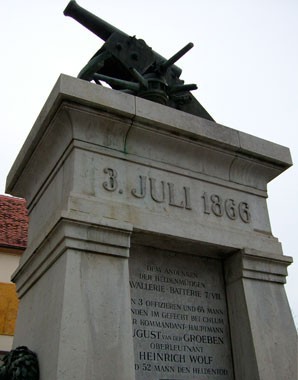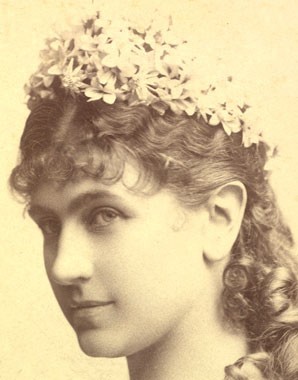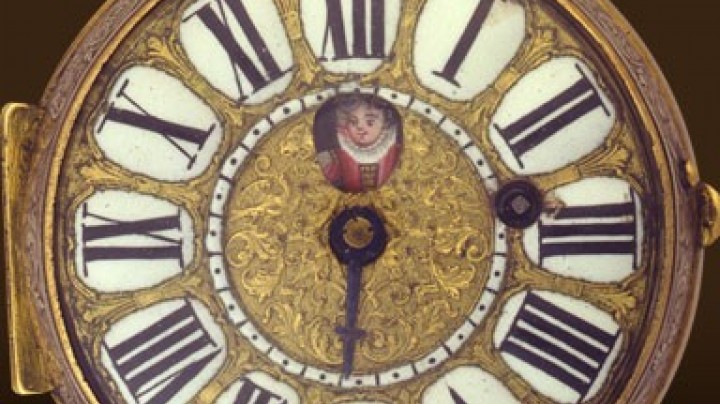A social hotspot: the Burgtheater
When censorship was abolished in 1848, the ‘old’ Burgtheater on Michaelerplatz experienced a brief heyday of freedom.
The director Heinrich Laube on the Emperor’s visits to the Burgtheater.The Monarch averred very gracefully that he was fond of going to the Burgtheater and would attend frequently. And he kept his word: in the early Fifties he was a keen visitor and laughed abundantly in the comedies … sometimes so much so that he stuffed his handkerchief in his mouth in order to muffle the sound of his laughter.
Under Heinrich Laube, manager from 1849 to1867, the Burgtheater had the largest repertoire in its history, with up to 150 different plays being staged each year. There was a heavy emphasis on Shakespeare, but plays by Johann Wolfgang von Goethe, Friedrich Schiller and the younger generation of German playwrights also featured on the schedule. Laube himself belonged to the latter group and had participated in the Frankfurt Parliament in the Paulskirche in 1848.
During the second half of the nineteenth century Laube built up the famous Burgtheater ensemble. In his productions the play itself was the focus: rejecting pathos and over-elaborate sets and costumes, he fostered clearly enunciated, precise delivery which remained the standard until the early twentieth century. This standard pronunciation became known as Burgtheaterdeutsch.
Under Heinrich Laube and his successor Franz Dingelstedt, who in contrast to the former put on elaborate productions with mass scenes and opulent costumes, the Burgtheater attained the reputation that it still enjoys today, of being the foremost stage in the German-speaking countries. Austria’s claim to cultural superiority above the other German states was a bid to replace its lost political role, especially after its defeat at Königgrätz.
More than ever before, the Burgtheater became a centre of Viennese social life, particularly for the aristocracy and liberal middle classes, and its actors were idolized as stars.
During the eighteen years of his management, the thrifty Laube made ‘not even a penny deficit’. Franz Joseph financed the theatre from his privy purse – all new actors joining the ensemble had to present themselves personally to the Emperor before taking up their engagement. He himself was fond of the theatre. Nonetheless, as he grew older he found it became an increasingly tedious official chore. Eventually he confined his interests solely to questions of theatre administration – and to his relationship with court actress Katharina Schratt.
In the 1880s tentative innovations in the repertoire were made: for the first time the tragedies of classical antiquity were performed. In 1885 Ferdinand Raimund’s Verschwender was performed there for the first time. Previously such classics of Viennese popular theatre had not been deemed worthy of inclusion in the Burgtheater’s repertoire.

